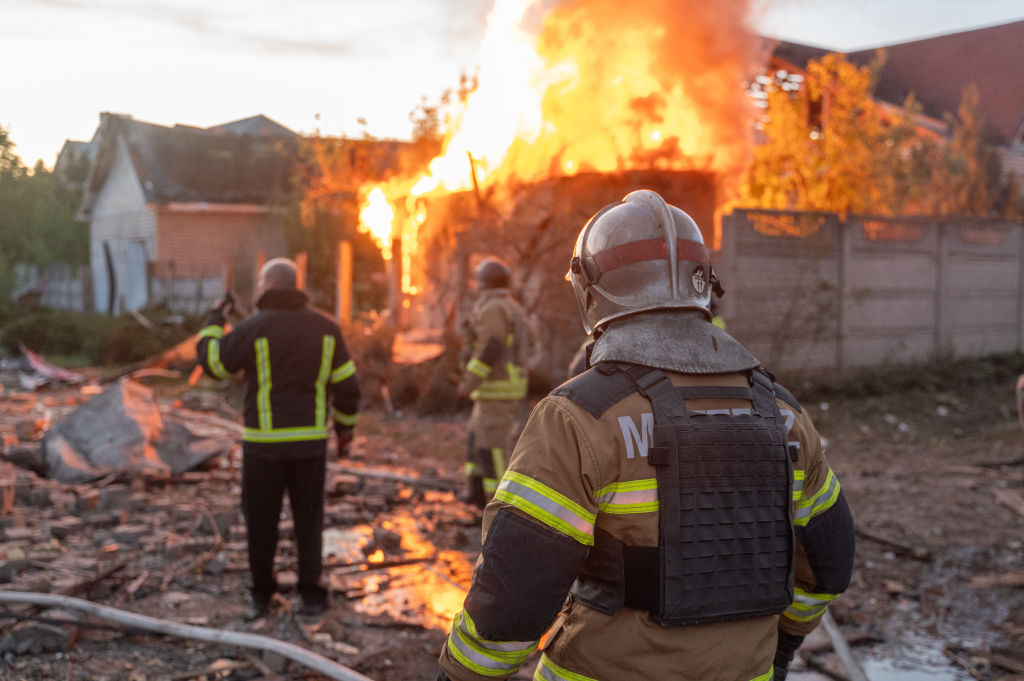Russia’s long-anticipated Kharkiv offensive, launched this weekend, may not have Ukraine’s second city as its immediate objective. Actually seizing the sprawling metropolis, dangerously close to Russia’s border, is both a major war aim for Moscow and a harder task than any Russian victory in the conflict so far. A mostly Russian-speaking city that is at the same time the birthplace of Ukraine’s most radical nationalist forces, Kharkiv could have been captured in the first hours of the 2022 invasion. Then, Russian tanks paused, for no obvious reason, on the city’s surrounding ring road, allowing Ukraine’s defenders time to seize the initiative and eventually push them back to the border.
That autumn, overstretched Russian troops were forced to relinquish their gains as a well-organised Ukrainian counteroffensive punched through their lines, recapturing almost all of the province and establishing Kharkiv as the launchpad for heavily publicised incursions into Russian territory, fronted by exiled Russian renegades. In doing so, they made the entire region on both sides of the border a contested grey zone.
Over the weekend, though, this dynamic changed. It is now Ukraine’s army, overstretched and undergunned, that is on the back foot as Kharkiv has once again become a major front in this industrial war of attrition. Intensified bombardment of the city in recent weeks, along with chatter of a looming Russian push, had made Moscow’s awakening of the long-dormant Kharkiv front a seeming inevitability.
Yet the Russian forces committed to the battle so far are too small in number to seize the city itself, vastly larger and more populous than any urban centre Russia has so far captured. Having captured five or six border villages along a wide front in the first hours of the new offensive — the tally given by Russian and Ukrainian accounts varies — Russian troops are enduring heavy punishment as their opponents rotate reserves from other fronts to stem the new incursion.
The Ukrainian Centre for Defence Strategies think tank, a generally more accurate source of analysis than most Western equivalents, observes that the Russian force failed to breach the defensive line “during the first 12 hours of combat operations and lost its ‘window of opportunity’” as it “employed a relatively limited number of troops and assets for the attack on the Kharkiv direction”. According to its analysis, Russia’s goals for this operation are — for now — modest, intending “to establish a 10-kilometer buffer zone along the northern border of Kharkiv Oblast, likely aimed at displacing Ukrainian forces beyond the effective range of small arms fire on Russian logistics targets in the Russian Belgorod Oblast and to bring their artillery within range of Kharkiv”.
But just re-establishing Kharkiv as an active front places great strain on an already overstretched Ukrainian army. According to Ukrainian sources, Russia’s initial gains were made as defending Ukrainian formations unilaterally retreated, forcing hardened troops rushed from elsewhere on the eastern front to shore up the line. Even if, as it seems, Moscow’s re-awakened Kharkiv front is merely a series of limited probing operations, laying the groundwork for a future offensive at scale, the modest Russian deployment — and the far larger reserves still uncommitted to operations — is preoccupying Ukrainian troops sorely needed elsewhere to defend the vulnerable northeastern border.
Kharkiv itself may be safe for now, but defending the new northeastern front has probably doomed the Ukrainian defence of Chasiv Yar, a strategically important hub for Kyiv’s hold of the sorely-pressed Donbas.
Already, Ukrainian commanders are briefing that the longstanding stronghold, now being enveloped by advancing Russian forces, is of no great importance: a highly likely indicator of a looming withdrawal. Dramatic though it may initially seem, Russia’s Kharkiv operation is, at least currently, barely about Kharkiv itself. Rather, its primary goal is to overstretch and then break the Ukrainian army in the Donbas. As Ukraine’s commander of ground forces notes: “Russia is testing the stability of our lines before choosing the most suitable direction.” The full Russian hammer blow, long predicted for this summer, is still yet to come.











Join the discussion
Join like minded readers that support our journalism by becoming a paid subscriber
To join the discussion in the comments, become a paid subscriber.
Join like minded readers that support our journalism, read unlimited articles and enjoy other subscriber-only benefits.
Subscribe